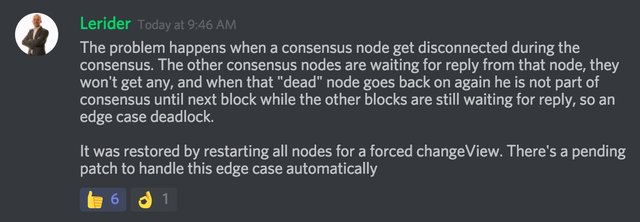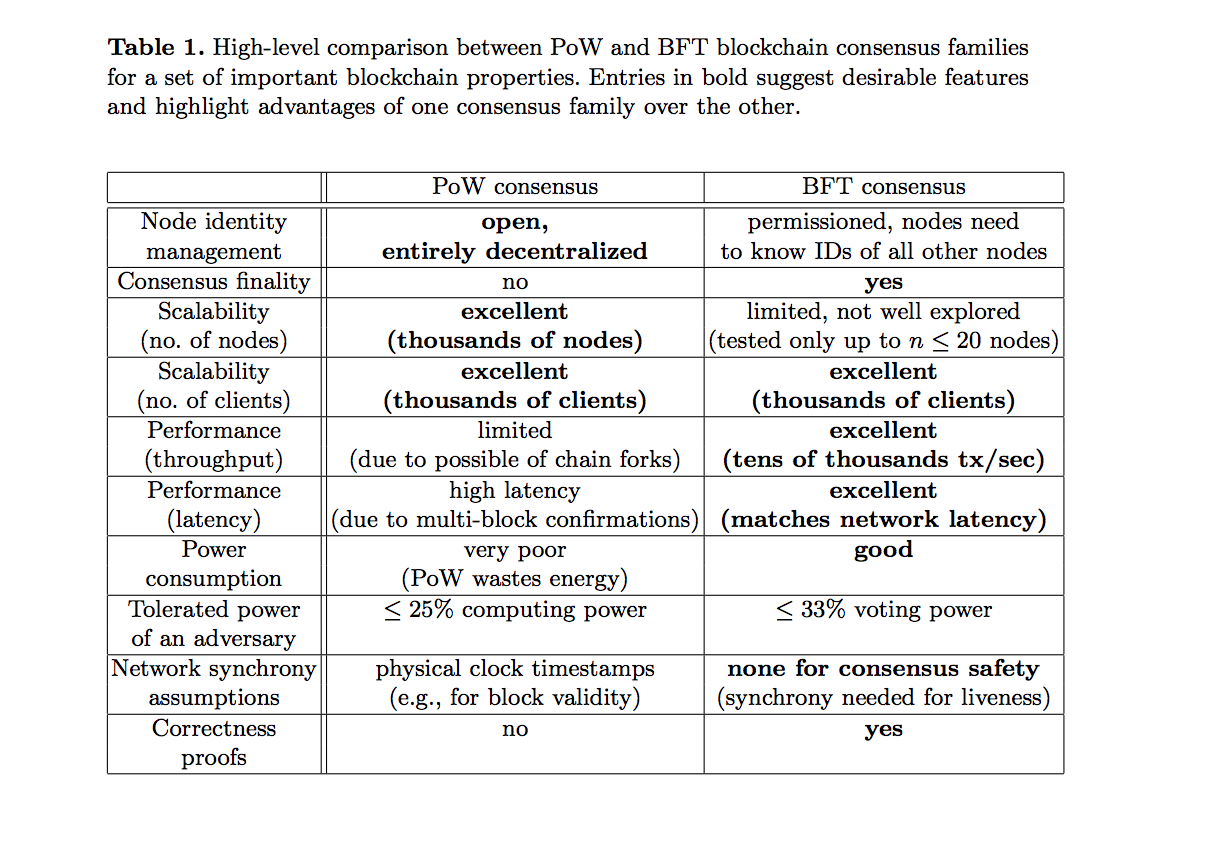Contrarian fundamental analysis of Neo
I read a twitter thread on Neo today that takes the position of Neo being a bad project to invest in.
I'm posting the thread here predominantly for my own keepsake as I tend to lose such threads later on. These threads serve as reminders which I revisit every once in a while. I learned quite a bit from the thread.
Before you read on: This is not written to create FUD about Neo or the BFT, I'm trying to learn more myself.
Highlights:
- NEO is currently the #6 largest crypto and is valued at $7.8bn. It is also the only cryptocurrency to receive an A-tier investment score by Weiss Ratings (Bitcoin got a C+).
- Neo doesn't use either of PoW or PoS. Which was a the first red flag at least for OP (Eric Wall). The reason that he mentioned is: otherwise it only means one thing - it's not trustless.
- Neo uses delegated Byzantine fault tolerant consensus algorithm which OP happened to have written a paper on. A Byzantine fault tolerant consensus algorithm is designed to be tolerant of Byzantine failures.
- Byzantine failures include all failures, starting from node failures to bugs and malicious attacks.
- Neo foundation has been using only 7 nodes as checkpoints so far, meaning it's more prone to attacks and it's designed to be tolerant of those.
- Neo appears to be using these different nodes in round-robin fashion, which has an issue where if one node fails during consensus, the whole network is stuck in a deadlock which happened on 3rd March 2018. It seems that Neo team did not think of a solution to this.
- OP concludes that Neo is a very badly designed Byzantine fault tolerant consensus system to the point of calling it "not even a fault tolerant" consensus system.
Response from Malcolm Lerider, who's the Senior R&D Manager for NEO:

Notes:
1] What are Byzantine failures:
Byzantine failures are defined as arbitrary deviations of a process from its assumed behavior based on the algorithm it is supposed to be running and the inputs it receives. Such failures can occur, e.g., due to a software bug, a (transitional or permanent) hardware malfunction, or a malicious attack. Overcoming Byzantine failures is becoming increasingly important for several reasons. Increasingly, we depend on the accuracy and correctness of computation in daily life, and the damage caused by a bad computation can have a severe monetary cost. Also, as most computers are connected to the Internet nowadays, they are exposed to hackers, which increases the likelihood of malicious attacks. Finally, recent initiatives, such as GRID computing and peer-to-peer computing, rely on the ability to run computations on foreign computers that cannot be trusted.
2] What does a Byzantine failure mean to the network:
The so-called fail-stop failure mode occupies the simplest end of the spectrum. Whereas fail-stop failure model simply means that the only way to fail is a node crash, detected by other nodes, Byzantine failures imply no restrictions, which means that the failed node can generate arbitrary data, pretending to be a correct one. Thus, Byzantine failures can confuse failure detection systems, which makes fault tolerance difficult. Despite the analogy, a Byzantine failure is not necessarily a security problem involving hostile human interference: it can arise purely from electrical fault.
3] A comparison of PoW and BFT consensus algorithms:

4] Storeofvalueblog's criticism of Neo's scaling issues:
Now that usage of the platform has increased with more attention on the project, its problems are becoming more and more evident. The number of unexplained network outages is rising and more and more smart contract developers are being turned away from developing on NEO.
Additional updates:
- Eric Wall - author of the tweet is a developer from BCash. BCash is also an investor in QTUM which is a competitor of Neo.
Everyone in the crypto world needs to educate themselves about real descentralized blockchains. Otherways, the crypto freedom won't be such freedom. Thank you.